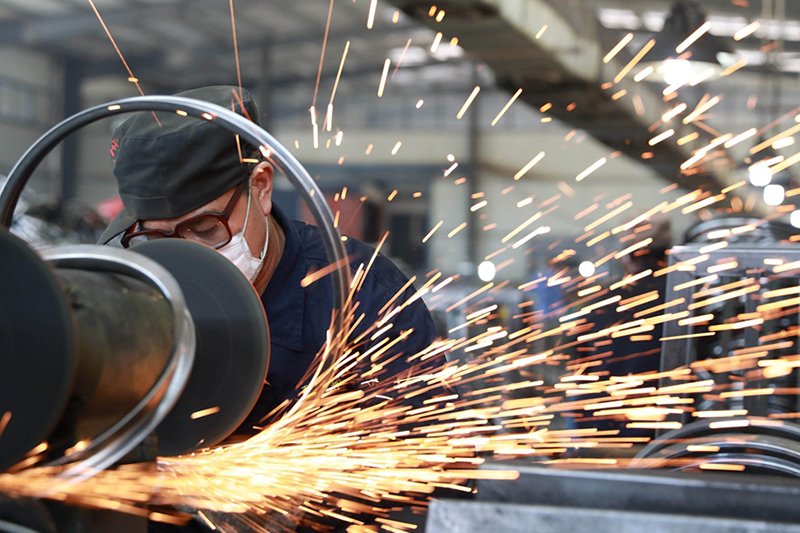Asia’s factories hit a rough patch in July as rising input costs and a new wave of coronavirus infections overshadowed solid global demand.
Manufacturing activity rose in export powerhouses Japan and South Korea, though firms suffered from supply chain disruptions and raw material shortages that pushed up costs.
China’s official Purchasing Managers’ Index (PMI), a key gauge of manufacturing activities, edged down to 50.4 in July due to an equipment maintenance period and the impact of extreme weather in some areas, but still landed in the expansive territory.
A reading above 50 indicates expansion in activities, while a reading below reflects contraction.
Indonesia, Vietnam and Malaysia saw factory activity shrink in July due to a resurgence in infections and stricter COVID-19 restrictions, according to private surveys.
The surveys highlight the divergence emerging across the global economy on the pace of recovery from pandemic-induced strains, which led the International Monetary Fund to downgrade this year’s growth forecast for emerging Asia.
The final au Jibun Bank Japan PMI rose to 53.0 in July from 52.4 in the previous month, though manufacturers saw input prices rise at the fastest pace since 2008.
Japan also faces a surge in Delta variant cases that has forced the government to expand state of emergency curbs to wider areas through August 31, casting a shadow over the Olympic Games and dashing hopes for a sharp rebound in July-September growth.
South Korea’s PMI stood at 53.0 in July. But a sub-index on input prices rose at the second highest on record in a sign of the strain firms are feeling from rising raw material costs.
Underscoring the pandemic’s strain on emerging Asia, Indonesia’s PMI plunged to 40.1 in July from 53.5 in June.
Manufacturing activity also shrank in Vietnam and Malaysia, the PMI July surveys showed.
While still grappling with infections, easing restrictions helped India’s factory activity bounced back in July as demand surged both at home and abroad.
(With input from Reuters)

























